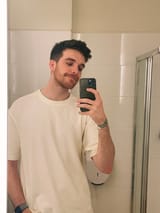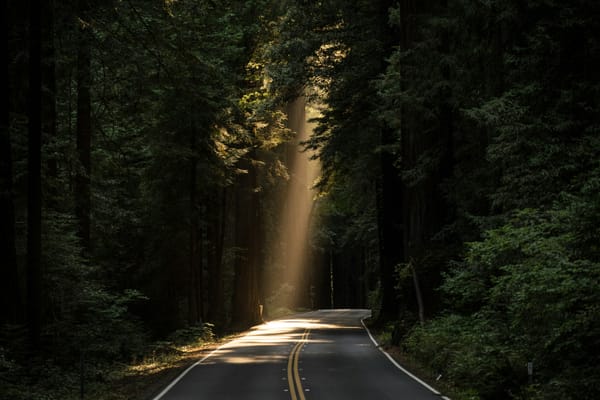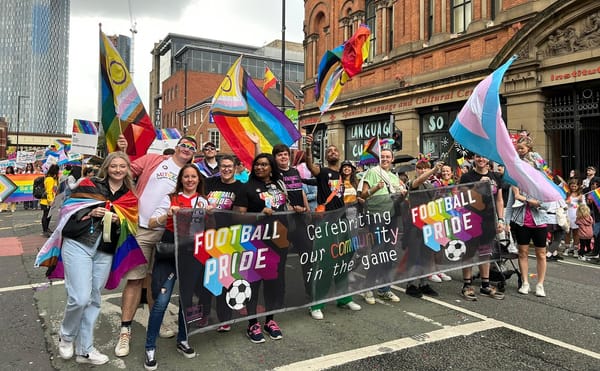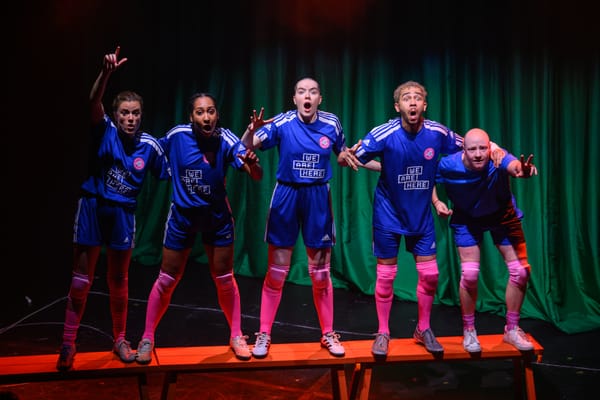I started a LGBTQ+ group for Sheffield Wednesday fans. Here’s what I’ve learned.
The journey from a tweet to 85 members.
LGBTQ+ football groups are essential to making football more welcoming to LGBTQ+ people. They advocate for queer fans, putting healthy pressure on clubs to do better. They offer a safe space for people that might otherwise feel isolated. And their visibility and action helps educate the often bigoted world of football about LGBTQ+ identity.
But who runs these groups? And how did they come to do so? This week, Chris explains how he came to found one of the newest of these groups, Rainbow Owls, and what he learned as he did.
For more pieces like this in your inbox, subscribe for free.
Adam
By Chris Ledger
To bastardise a famous pop song, "it started with a tweet."
My journey back to Hillsborough, and finally beginning to reconcile my sexuality with a love of sport, started on 20 April 2023 when I tweeted:
“Hi, LGBTQ+ #swfc fans! I’m planning to host an LGBTQ+ meet-up for @swfc fans before the Exeter match on Sat 22 April, circa 1.30pm at The Pangolin. I’ll try to be there earlier for early birds & will be wearing this top! LGBTQ+ #ecfc fans are welcome, too. Please RT/RSVP, thanks!”
I genuinely didn’t expect anything to come from that tweet. My own personal Twitter account has never been awash with sporting references, after all, while I was only followed by a few LGBTQ+ football supporters at a push. As far as the Owls were concerned, I was an isolated unknown.
Coming from a family — a rather conservative one — that loathes football added to that strandedness when I was a slight latecomer to our beautiful game. I only got into it at 12 years old after buying a cheap N64 copy of FIFA ’98, from the Meadowhall branch of WHSmith for just a tenner. I got completely obsessed with it. It took a decade for me to attend my first ever match, a home friendly against Hull City, in 2009. The idea of having football friends and being anything more than a solo fan, never mind having the sense of belonging to a club, was alien.
In fact, the last time that I had attended a live football match before April was when Sheffield Wednesday lost 3–0 to Watford in October 2014. The game itself was fine.
But, being deeply in denial of my sexuality at the time, I was mentally and physically beaten by the game. It made me withdraw to a former shadow. Having heard racist abuse towards Anthony Gardner a season earlier, the fear of potentially hearing homophobic abuse was ultimately too much. A month later, I made a botched failure to come out before I was ready and then I pretty much had a complete nervous breakdown.
Football was the first thing to suffer: everything about it seemed hollow, in that every goal, pass, save and tackle seemed completely identical, so I ended up chucking out all of my football books and magazines. Any passion for writing about football was lost, despite studying for a postgraduate in journalism beforehand. Brief glimpses of Wednesday’s play-off final loss to Hull City in 2015 was the last bit of football I had actively watched on TV until the live coverage of the men’s Euro 2020 final that I simply adored.
Indifference later turned to bitterness and resentment. Amid the England male team’s fourth-placed World Cup finish in 2018, the nation’s excitement felt like arrogance. It was too much for me to handle.
Just before lockdown, gradually, I was able to ease my way back into sport and start accepting my sexuality for the first time. I purchased retro FourFourTwo magazines from the late 1990s in the same week as sharing my first kiss and physical encounter with a man. As both were sadly unrelated, an immediate ghosting was inevitable.
My baby steps continued, whether it was dabbling with Fantasy Premier League two seasons ago or visiting Canal Street and an actual gay bar for the first time in February, until I seemed emotionally and physically ready to step back into a football stadium again for the first time in nine years.
Somehow, my tweet took off: 171 likes and 30 retweets for someone who hadn’t used the #swfc hashtag for a while was nothing to be sniffed at.
The three wonderful people who run the Sheffield Wednesday Women’s Supporters’ Group kindly reached out via DM to recommend that I should email Tracey Fidler, the club’s designated safeguarding officer and EDI lead. I decided on a whim that I had nothing to lose. As it turned out, there had been plans at the club for an LGBTQ+ supporters’ group since the start of last season and they were actually waiting for an LGBTQ+ fan to come forward.
Tracey offered me the opportunity to set up Rainbow Owls on the spot, following a successful meeting where we hit it off, but it was a decision that I had to think long and hard about. I wasn’t sure if I was the right person for that role and those doubts might always remain.
Having just one other person turn up to that Exeter meet-up didn’t bother me. The fact that something happened in the first place was a success in itself. It has never been a numbers game; it’s all about making a difference to our fanbase. I was more concerned if I had the passion and knowledge of the club’s recent history to pull this off, but a mentor assertively instructed me that my rediscovered love of football and burgeoning interest in LGBTQ+ issues could make this an ideal challenge for me to grow as a proud LGBTQ+ person. He thought that not embracing this opportunity with both hands would be a genuine shame.
If I was going to do this, I needed ideas. I spent a couple of weekends intensely going through every Twitter account belonging to an LGBTQ+ supporters’ group, to see how they had developed themselves. I wrote the ideas down: Proud Terriers running an information stall at their stadium, Proud Rovers publishing a list of LGBTQ+ support organisations on their website, Rainbow Blades attracting three ambassadors with strong links to their club.
It quickly became obvious that, by piecing together various bits and bobs from several groups, we could quickly build a robust infrastructure and plan.
Learning from this very newsletter that Richard Young, chair of QPR’s Rainbow Rangers, had teamed up with Opening Doors last season to introduce LGBTQ+ people to Loftus Road for the very first time acted as the final bit of encouragement.
Rainbow Owls became a necessary thing to do.
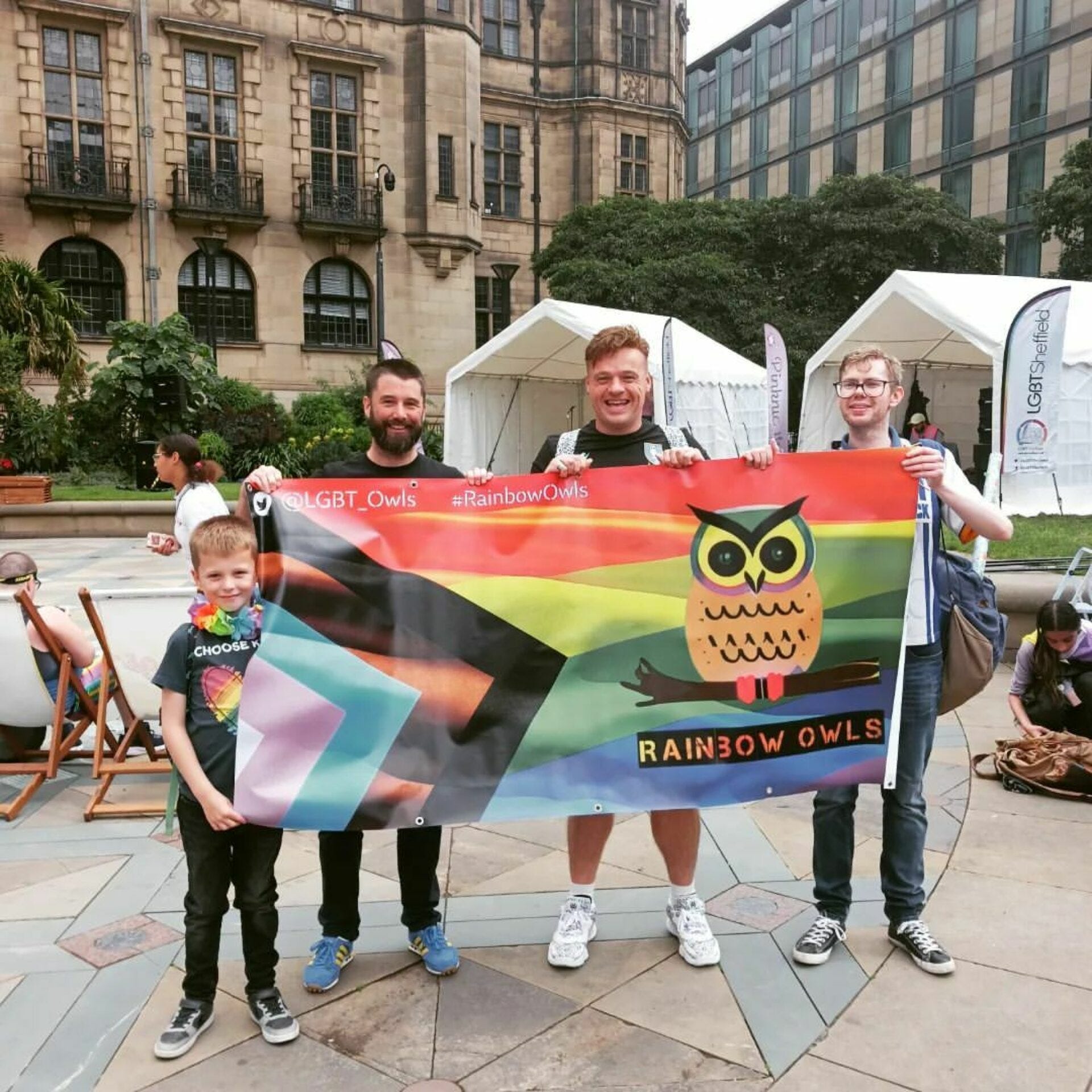
By good fortune, it was Rainbow Blades’ – Sheffield United’s LGBTQ+ fan group – sterling work that meant certain things actually fell into my lap. Proud Owls, the name of the previous and defunct Sheffield Wednesday LGBTQ+ supporters’ group, had since been taken by LGBTQ+ fans of Union Omaha. The Rainbow Owls name was ideal: the consistency and repetition of this shared language makes it easier for both Sheffield teams to join forces when possible and tackle discrimination in football together.
The dedication of and mentorship from Rainbow Blades’ founder and chair James Laley gave me further encouragement that Rainbow Owls could punch above its weight.
It meant that when it came to launch day, we could reassure Owls fans that Rainbow Owls wouldn’t enter the LGBTQ+ football arena and then disintegrate within months. I wanted to get this right.
But I did have ideas of my own. I immediately sensed that, while pre-match socials are the bread and butter of an LGBTQ+ supporters’ group, something like Rainbow Owls is also serving the broader LGBTQ+ community within Sheffield.
Sheffield has so few gay and queer bars right now, so there’s everything to gain and little to lose by broadening the vision of Rainbow Owls slightly to work together as a city.
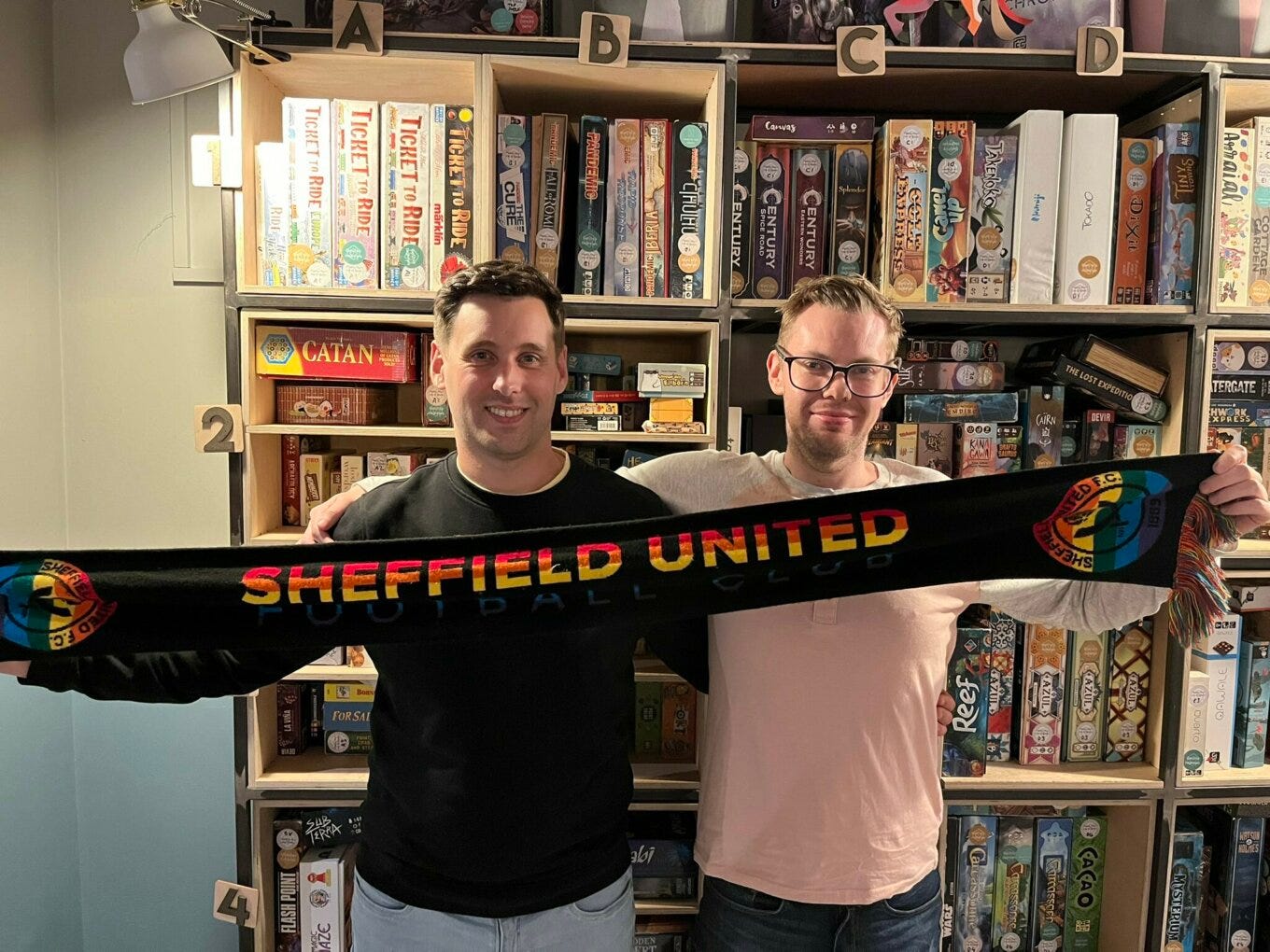
I also wanted to make sure Rainbow Owls isn’t just about cisgender and white gay men. It needs to be crystal clear that football really is for all. My intentions are good, but I know that I don’t know everything. I still have work to do, especially as a relatively new member of the LGBTQ+ community, but it’s encouraging that Rainbow Owls are proud to already have asexual, bisexual, non-binary, queer and trans members.
With consistent and tangible engagement, we’ll eventually get there and build a space that all members of the LGBTQ+ community feel they can be a part of, without coming across as misguided, naive or tokenistic.
And the results so far are encouraging. Within our first two months: Rainbow Owls registered 85 LGBTQ+ and ally members, we marched with our banner and other LGBTQ+ groups at Leeds Pride and Sheffield Pinknic, and we donated a number of LGBTQ+ books to our LGBTQ+ charity partner SAYiT for their teenage and young adult members.
Our links with both Sheffield Wednesday and other LGBTQ+ supporters' groups have been strengthened, too, as we recently became a founding member of the UK's first Regional LGBTQ+ Supporters' Group Alliance for groups in Yorkshire, Derbyshire and Nottinghamshire, along with six other groups.
The club's community programme has agreed to host LGBTQ+ presentations at their education hub on matchdays, from organisations including Sexual Health Sheffield and South Yorkshire Police, in order to mark the likes of PrEP Awareness Week and Hate Crime Awareness Week. Their willingness to make sure that their LGBTQ+ education and representation is more consistent throughout the season has been sincere and greatly appreciated.
When members of Rainbow Saints experienced in-person homophobic abuse near Hillsborough Stadium after they met us at our first EFL pre-match social, we could proactively report it to our club's EDI lead. That prompted an investigation, and we went on BBC Radio Sheffield's breakfast show to discuss the incident, hopefully educating people in the process. It feels comforting to know that there’s now a dedicated voice for LGBTQ+ Wednesday supporters.
In a way, Rainbow Owls has now become a slight victim of its success, as it has suddenly become considerably harder to feasibly manage after such instant and unexpected growth.
That’s a pitfall of starting an LGBTQ+ supporters’ group without a proper support network in place. Eventually, you need more than one person to run the thing. I’ve swiftly learned that I need to build a committee with fans who I know and trust, so that I can focus more on strategically implementing the long-term vision of Rainbow Owls.
But the thing about LGBTQ+ supporters’ groups is that even when you join or start one without knowing many fans, a new football family of LGBTQ+ people and allies will snowball. You can still end up finding varied help in unexpected ways. In fact, some fans, like me, can find their first local LGBTQ+ friends through something like Rainbow Owls.
This rare opportunity to give other emerging LGBTQ+ fans the chance to enjoy a more visible presence within the Sheffield Wednesday fan community is by far the most rewarding thing about Rainbow Owls. To say that it’s priceless is an understatement. And it all started with a tweet.
Programming notes
We’ll be back every few weeks this season with more writing about LGBTQ+ identity and football.
If you’re a queer fan, join our new WhatsApp group chat. It’s a safe space to talk all things football and LGBTQ+ identity. All members of the LGBTQ+ community are welcome. To join, email join@outandout.football, message us on social (we’re on Instagram/Threads, and X/Twitter), or reply to this email and we’ll get you sorted. I’d love to see you there.
And it’s not too late to join the Out and Out Football FPL league. If the chat on WhatsApp is anything to go by, it’s going to be fiercely competitive…
